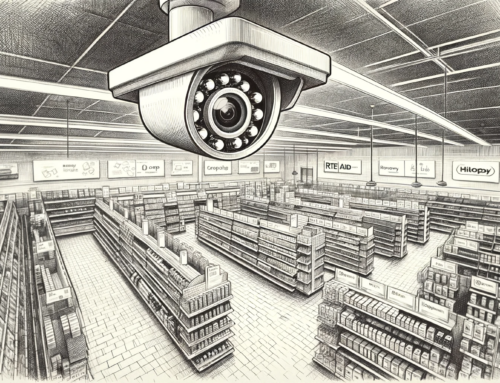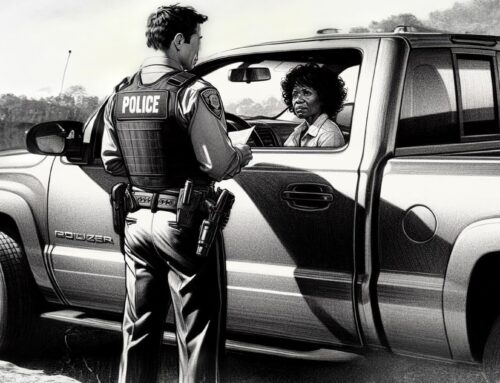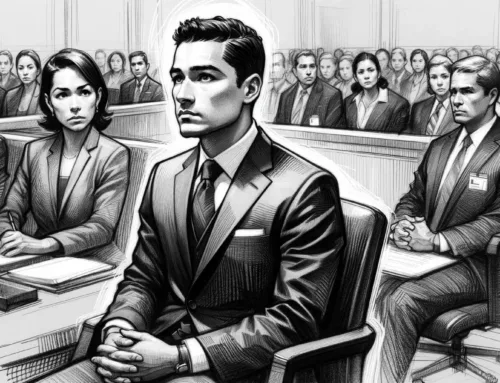Unraveling the Truth: Why Witnesses Lie and How to Recognize the Signs
When facing criminal charges, the testimony of witnesses can significantly impact the outcome of your case. As your criminal defense team, it’s our responsibility to carefully examine the information provided by witnesses to build the strongest possible defense for you. It’s important to understand that witnesses can and do lie. It is equally important to understand why witnesses lie, how to recognize the signs of lying, and how to address it in court effectively.
I. Why Witnesses Lie
There are several reasons why witnesses may lie in a court setting. Understanding these motives can help you better comprehend the challenges in defending your case. Here are some common reasons:
- Fear: Witnesses may lie out of fear, whether afraid of repercussions from the defendant, the police, or others involved in the case. Fear of retaliation or harm to themselves or their loved ones can influence a witness to provide inaccurate or misleading testimony.
- Bias: Personal biases, either in favor of or against the defendant, can impact a witness’s testimony. For example, a witness might have a personal connection to the victim or defendant, leading them to intentionally or unintentionally provide a skewed account of the events.
- Memory distortion: Human memory is far from infallible. Witnesses might genuinely believe they are telling the truth, but their memories may have been altered or influenced by factors such as time, suggestion, or emotional trauma. This can result in false testimony that may appear genuine.
- Attention-seeking: Some witnesses may exaggerate or fabricate stories to gain attention or recognition. This can stem from a desire for fame or notoriety, or a psychological need for validation may drive it.
- Coercion: Witnesses may provide false testimony due to coercion from law enforcement or other authorities. This can occur when investigators pressure witnesses to provide information that aligns with their narrative or when a witness feels obligated to provide testimony supporting the prosecution’s case.
II. How to Tell If a Witness Is Lying
Detecting potential lying and dishonesty in a witness’s testimony is crucial. Here are some strategies and techniques we employ to help identify and address signs of untruthfulness:
- Inconsistencies: We compare a witness’s testimony with other available evidence to reveal inconsistencies or contradictions. We pay close attention to their account details and cross-reference their statements with other witness testimonies, physical evidence, or expert opinions. Inconsistencies might indicate that the witness is not being truthful or providing an unreliable account of events.
- Verbal cues: We listen carefully to the witness’s choice of words and phrasing. People who may not be telling the truth often use language that is less direct, less specific, or more evasive. They may also repeat phrases or questions in an attempt to buy time to construct their story.
- Non-verbal cues: We observe the witness’s body language, facial expressions, and eye contact. Signs of dishonesty may include excessive fidgeting, avoiding eye contact, or displaying inconsistent or exaggerated facial expressions.
- Emotional reactions: A witness who may not be truthful can display inappropriate or exaggerated emotions, such as appearing overly calm or excessively emotional when recounting events. They may also react defensively when questioned or challenged about their testimony.
- Baseline behavior: We establish a witness’s baseline behavior by observing their demeanor, speech patterns, and body language when discussing neutral topics. We then compare this to their behavior when recounting the events in question. Deviations from their baseline behavior may be indicative of deception.
III. How to Challenge Lying in Court
If we suspect a witness is lying, we must address the issue strategically and effectively in court. The following are some methods we use to handle potentially dishonest witnesses during cross-examination and in the presentation of your defense:
- Challenging credibility: We challenge the witness’s credibility by using evidence or testimony to raise doubts about their truthfulness. Presenting prior inconsistent statements, contradictory evidence, or highlighting their motive to lie can undermine the witness’s reliability in the eyes of the court.
- Expert testimony: We utilize expert witnesses to provide context and explain discrepancies or inaccuracies in the witness’s testimony. An expert in memory, psychology, or forensics fields can help the court understand the limitations and fallibility of human memory and perception, casting doubt on the witness’s testimony.
- Cross-examination: We conduct a thorough and strategic cross-examination to expose potential dishonesty. We focus on inconsistencies, contradictions, or implausible aspects of their testimony.
- Rebuttal witnesses: If appropriate, we present rebuttal witnesses who can provide a different account of events or challenge the potentially dishonest witness’s testimony. Rebuttal witnesses can help establish a more accurate and credible narrative in the eyes of the jury.
- Closing argument: In our closing argument, we address the witness’s potential dishonesty and emphasize the importance of credibility in your case. We highlight the inconsistencies, contradictions, or implausible aspects of the witness’s account and remind the jury of the evidence that supports your innocence.
Contact an Experienced Criminal Defense Attorney
Understanding why witnesses may not be truthful and being able to identify and address potential dishonesty are crucial skills for any criminal defense lawyer. By employing effective strategies to challenge and expose potentially dishonest witnesses, we can help you level the playing field and provide you with the strongest possible defense. Contact us today for a free consultation if you or a loved one is facing criminal charges.
CALL US for a FREE CONFIDENTIAL CONSULTATION at (305) 538-4545, or take a moment to fill out our secure intake form. *The additional information you provide will greatly assist us in responding to your inquiry.
*Due to the large number of people who contact our law office requesting our assistance, it is strongly suggested that you take the time to provide us with specific details regarding your case by filling out our confidential and secure intake form. The additional details you provide will greatly assist us in responding to your inquiry promptly and appropriately.
ALWAYS INVESTIGATE A CRIMINAL DEFENSE ATTORNEY’S QUALIFICATIONS AND EXPERIENCE BEFORE MAKING A DECISION ON HIRING A LAWYER FOR YOUR CASE IN MIAMI-DADE COUNTY








